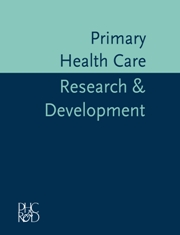TOPSE for Babies: Measuring parenting self-efficacy
Transitioning into parenthood is a joyful yet often overwhelming life event. Helping parents feel more confident during this time is important for their well–being and for healthy child development.
Initially developed in the UK for parents of children aged 0–6 years, the Tool to measure Parenting Self-Efficacy (TOPSE) is a questionnaire designed to evaluate parenting programs and measure parenting self-efficacy (PSE) – their confidence in their parenting abilities. It was created in response to a request from public health nurses, who wanted a reliable way to assess the outcomes of their parenting support work. Since its development, TOPSE has been used in several countries and has proven to be a reliable tool for measuring PSE in many cultures.
A modified version, the TOPSE for babies, has been developed to cater to parents of infants aged 0–6 months, a group that frequently interacts with primary healthcare services. Recently, TOPSE for babies was found to be reliable to measure parenting self-efficacy in Norwegian parents, with some variations across the children’s age and the tool’s six domains. A research article detailing the translation and evaluation of the Norwegian version of TOPSE for babies is available here for more in-depth insights. The article argues that TOPSE is a valuable tool for measuring parenting self-efficacy and enhancing and assuring the quality of primary health care services in Norway and globally.
The significance of TOPSE for babies lies in its potential to impact early childhood development, a focus highlighted by global organisations such as the United Nations International Children’s Emergency Fund (UNICEF). The first 1,000 days, from conception to age two, are critical for a child’s development. Investments in nurturing care during this period can substantially influence a child’s life trajectory. Reliable tools such as TOPSE are essential in evaluating the effectiveness of programs that aim to support parents during these early stages. Additionally, TOPSE can help healthcare professionals in primary health care settings. Using the tool, they can facilitate meaningful conversations addressing key topics and concerns with parents. This approach is instrumental in elevating the quality of care provided, aligning with World Health Organization (WHO) recommendations that emphasize the importance of interventions supporting maternal mental health and childhood development and evaluating such interventions.
By assuring the quality and effectiveness of programs within primary care services, TOPSE supports national healthcare guidelines across countries, promoting nurturing care for early childhood development. Such efforts align with UNICEF’s goals of protecting, promoting, and supporting child development worldwide. Moreover, TOPSE could help governments uphold their collective responsibility by providing evidence-based tools to ensure every child can reach their full potential. This aligns with broader international strategies that recognize the value of evaluating programs used in primary care as part of a holistic approach to early childhood development.
In summary, TOPSE equips primary healthcare services with a valuable tool to evaluate parenting support work, while also offering clinical value by guiding meaningful, structured conversations between healthcare professionals and parents – ultimately helping to strengthen early childhood care.

Primary Health Care Research & Development is a fully open access journal aimed specifically at both researchers and practitioners in primary health care, bridging the gap between primary health care research policy and practice. It provides a forum for the publication of international, interdisciplinary research and development in primary health care. The journal has a particular interest in research and development that addresses integration of health care services, intersectionality and transitions in care.




